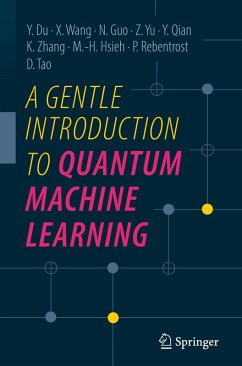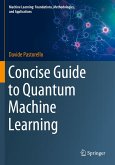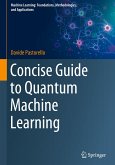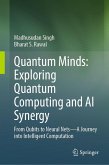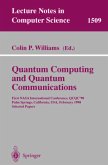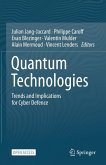Quantum machine learning (QML) is revolutionizing artificial intelligence by leveraging the power of quantum computing to access previously unimaginable computational possibilities. However, the field remains fragmented balancing rigorous quantum theory with practical AI applications remains a challenge. This book bridges this gap, offering a systematic, hands-on guide for AI researchers, ML practitioners, and computer scientists eager to explore this emerging frontier.
It provides a cohesive roadmap, covering everything from fundamental quantum computing principles to state-of-the-art QML techniques. Readers will explore quantum kernel methods, quantum neural networks, and quantum Transformers, gaining insight into their theoretical foundations, performance advantages, and practical implementations. The book s code demonstrations offer hands-on experience, ensuring that readers can move beyond theory to real-world applications.
Designed for those with an AI orML background, this tutorial does not assume prior expertise in quantum computing. Instead, it presents complex concepts with clarity, making it an essential resource for researchers, graduate students, and industry professionals eager to stay ahead in the quantum AI revolution. Whether you seek to understand quantum speedups, develop quantum-based models, or explore future research directions, this book provides the foundation you need to engage with QML and shape the future of intelligent computing.
It provides a cohesive roadmap, covering everything from fundamental quantum computing principles to state-of-the-art QML techniques. Readers will explore quantum kernel methods, quantum neural networks, and quantum Transformers, gaining insight into their theoretical foundations, performance advantages, and practical implementations. The book s code demonstrations offer hands-on experience, ensuring that readers can move beyond theory to real-world applications.
Designed for those with an AI orML background, this tutorial does not assume prior expertise in quantum computing. Instead, it presents complex concepts with clarity, making it an essential resource for researchers, graduate students, and industry professionals eager to stay ahead in the quantum AI revolution. Whether you seek to understand quantum speedups, develop quantum-based models, or explore future research directions, this book provides the foundation you need to engage with QML and shape the future of intelligent computing.

